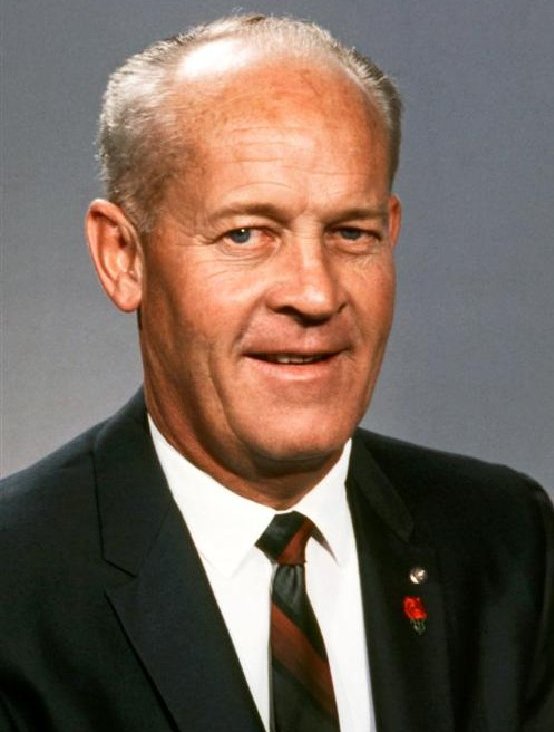CHIEF OLIF J. "JIMMY" ROED
BADGE 5, 27 & 31
11/17/1941 - 03/11/1971
CHIEF TENTURE 01/04/1968 - 03/11/1971
With the retirement of Chief Wes Sharp, the City Manager nominated 48-year-old O.J. Roed as the next chief.
Hired on November 17, 1941, Roed was considered by many within the police department to be a clean cut, honest man who truly cared for each of the officers he worked with.
When he officially became chief on January 4, 1968, officers were finding themselves in constant battle with the anti war protestors and violence in the streets.
Three months after taking office, the new chief told several members of the American Civil Liberties Union the department’s biggest problems were retention of officers, a rising crime rate, drug abuse in the community and court decisions that tied the hands of police officers.
Put it all together and there were very few quality candidates applying to become cops.
To further add to his stress, shortly after Roed took office, the California State Attorney General began an investigation into charges of vice detectives accepting bribes and gifts from police regulated businesses.
The investigation lasted more than two years and almost 100 officers were questioned. When it was over seven officers resigned, while several officers were criticized for refusing to cooperate with the investigation.
The final draft of the report was released on January 23, 1970, and was very matter of fact in stating while there were several officers who refused to be interviewed, there was no organized corruption within the police department. The report stated there had been individual acts that were questionable but those acts occurred too long ago to be prosecuted as the statute of limitations had expired.
The report was a partial vindication of the police department. Its release ushered in a new city code of ethics requiring all employees to cooperate with any investigation.
As chief, Roed showed he was a capable manager but like many before him he made a huge mistake when he tried to do battle with the City Manager. The problems started when Roed made issue out of his $17,000 salary. Roed said Manager Walter Hahn had promised more and was stalling in getting it.
To make matters worse on July 13, 1969, a riot broke out in Mountain View Park and two people were shot and killed. As officers tried to get into the park, they were shot at and attacked with rocks and bottles. The unrest continued to grow until it had overtaken several neighborhoods in the southeast sector of the city. Nineteen stores were looted as armed thugs tried to take over the neighborhood. Police officers responded in force and arrested 30 people but the rioting continued. Concerned that rioters might move downtown and attempt to take over headquarters, Roed posted a lookout on the roof.
Meanwhile, more than 200 officers were sent into the area to break up the fighting. Despite officers being armed with shotguns and riding three to a car, they still found themselves being shot at and firebombed. Finally tear gas was fired into the crowd and officers wearing riot gear went in and cleared the streets. The riot was over.
To keep the peace, officers continued heavy patrols near the park. The beefed up patrol was a success in putting down the fighting but to City Manager Walter Hahn it was an outrage. Hahn called a special meeting with Roed’s deputy chiefs and demand they put a stop to it.
When O.J. Roed learned of the meeting he was furious. He was not notified of any meeting and saw Hahn’s action as a direct attempt to undermine his authority. That night the two men had a heated argument over the incident with Roed even going so far as to threaten to resign. The threat made Hahn agree to back off trying to control the department but it was the beginning of the end of the relationship between two of the city’s most powerful leaders.
The two men would clash on several other major issues until it finally reached the point Roed had enough. Complaining of a heart condition brought on by stress, O.J. Roed went on sick leave on March 11, 1971, and never looked back. He officially retired on January 19, 1972. His successor, Ray Hoobler, would soon find himself involved in the same old thing - doing battle with City Hall.

